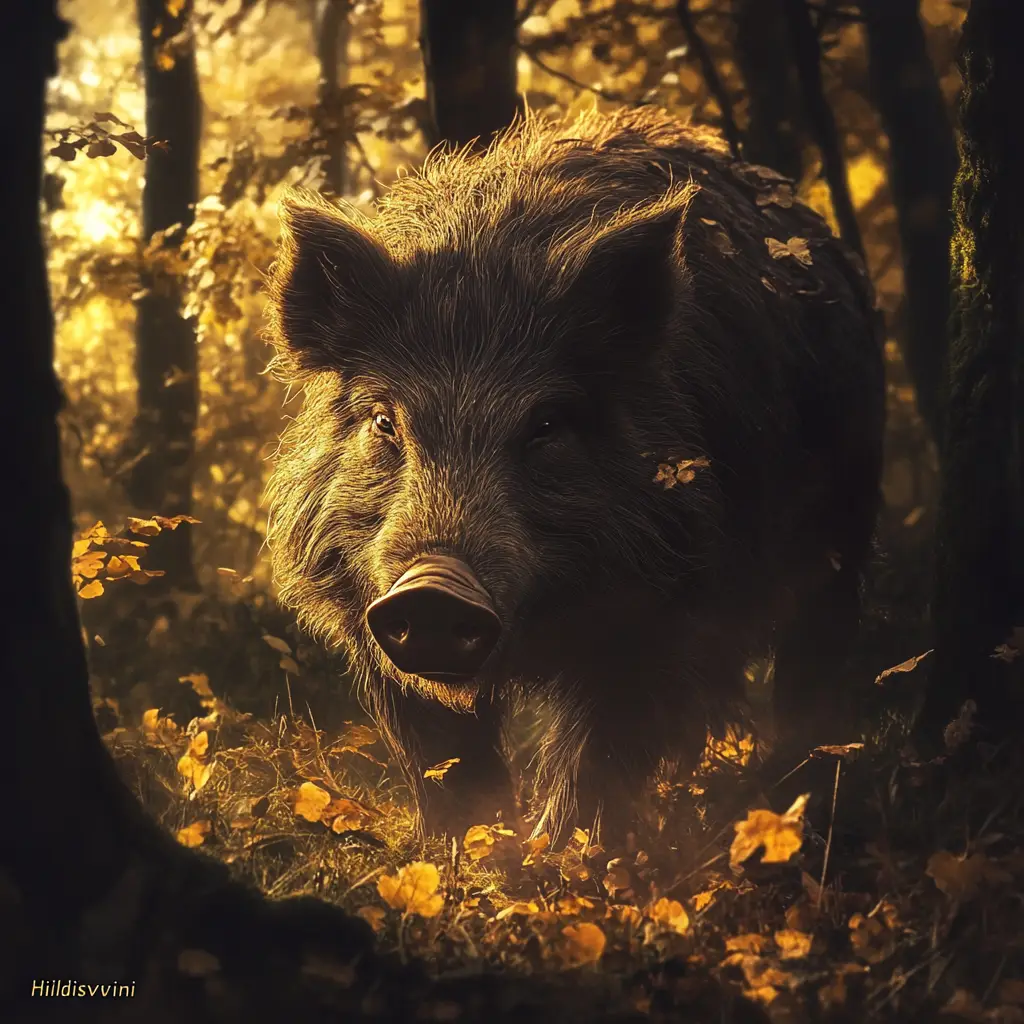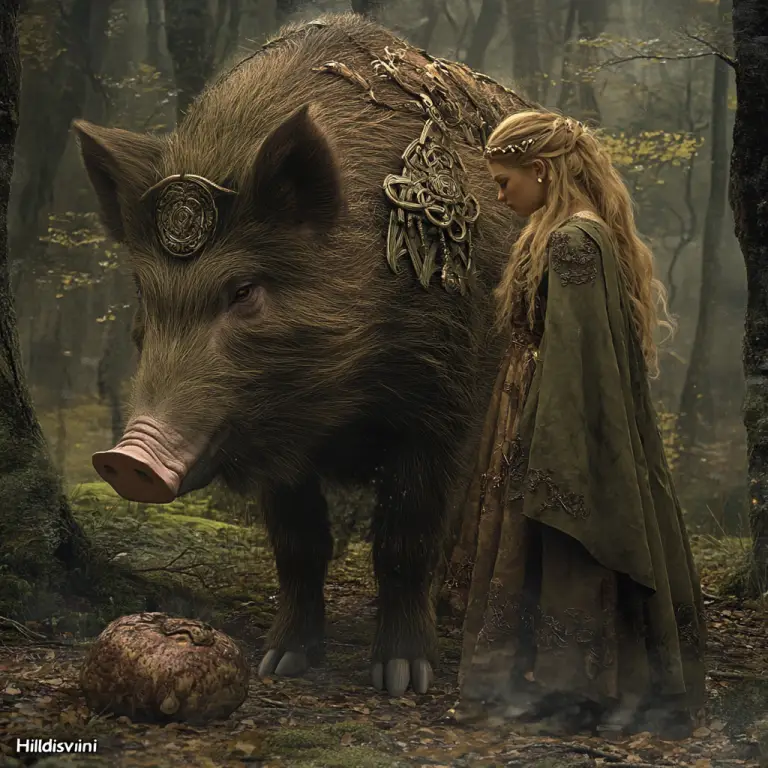Hildisvíni is a magical boar in Norse mythology, known as the battle companion of the goddess Freyja, who is associated with love, beauty, fertility, and war. The name “Hildisvíni” means “Battle Swine” in Old Norse, reflecting the boar’s dual role as a symbol of both fertility and a fierce warrior protector.
Key Aspects of Hildisvíni
Connection to Freyja
Hildisvíni is Freyja’s mount, a symbol of her ability to navigate both realms of fertility and battle. Freyja, as a goddess who presides over love and fertility but also has a strong connection to war and death, rides Hildisvíni into battle.
The boar represents strength and protection, traits associated with Freyja’s warrior side, as she is also a leader of the Valkyries and receives fallen warriors into her hall, Fólkvangr.
Story in Hyndluljóð
In the poem Hyndluljóð from the Poetic Edda, Freyja rides Hildisvíni on a quest to uncover the lineage of her beloved human, Óttar. The goddess disguises Óttar as the boar itself, suggesting that Hildisvíni may also have been Óttar in some myths, or that Freyja used magical means to transform him for the journey.
This story highlights Freyja’s cunning and protective nature, as she rides the boar on an important mission tied to family and legacy, underscoring her role in matters of love and loyalty.
Symbolism
Fertility and Abundance: Like the golden boar Gullinbursti, Hildisvíni represents fertility and the bountiful aspects of nature, tying into Freyja’s role as a goddess of fertility and the earth.
Warrior and Protector: The name “Battle Swine” emphasizes Hildisvíni’s role as a fierce, battle-hardened companion. In Viking culture, boars were seen as powerful and brave animals, known for their aggression and strength in defending themselves. Freyja’s connection to Hildisvíni highlights her dual nature as both a nurturer and a warrior.
Boar in Norse Symbolism
In Viking culture, boars were considered symbols of strength, fertility, and protection. Boar motifs were common in warrior gear, such as helmets and shields, emphasizing their protective and aggressive characteristics in battle.
The association of a goddess like Freyja with a powerful boar reinforces the idea that she embodies not only the nurturing aspects of womanhood but also the fierce, combative qualities necessary for protection and leadership.



